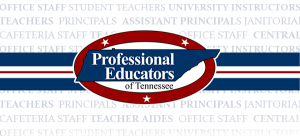In the ongoing debate over education policy, states and school districts find themselves in a precarious position. While they seek greater control over their educational initiatives, they also heavily rely on federal funding to support these efforts.
This tug-of-war between local autonomy and federal oversight creates a complex landscape for education. The reality is that accepting federal money often comes with cumbersome strings attached—policy directives and regulations that may not align with the unique priorities of each state.
It is imperative that we advocate for increased flexibility for states, local communities, and schools to determine how federal education dollars are allocated. The idea of consolidating federal funding into block grants is a promising solution, allowing states and districts to demonstrate academic improvement in exchange for financial support.
After all, leaving taxpayer money unutilized is not a viable option. This raises an urgent question: Have we, in Tennessee and beyond, compromised too much control over our educational systems in exchange for federal dollars and misguided policy directives?
At the heart of this discussion lies a fundamental truth: education is primarily a state and local responsibility. We must emphasize the importance of granting states, local communities, and schools the autonomy to manage federal education funds according to their specific needs and goals.
The federal government should take a bold step by consolidating funding for all categorical programs and providing states with a block grant. Under this framework, states, school districts, or charter schools could enter into agreements with the federal government, demonstrating academic improvement in exchange for funding. This approach empowers local entities to utilize federal resources in a manner that best suits their educational objectives.
Recent developments in Congress reflect a growing recognition of the need for change. Key U.S. senators from both parties have strongly rejected the Trump administration's proposals to cut K-12 education funding and to shift the Department of Education's functions elsewhere.
On Thursday, July 31st, a federal budget bill for education, labor, and health was advanced to a full Senate vote, featuring modest increases for critical programs like Title I and special education while maintaining separate funding streams for existing grants.
This bill also aims to protect vital Education Department offices and includes requirements for timely fund distribution and adherence to essential functions, countering the administration's attempts to reduce funding and consolidate programs. It represents a significant congressional response to the Trump education budget.
The brilliant minds at the US Department of Education sought to slash overall Department investments by 15%, which would have been better served by promoting greater flexibility and autonomy at the state and local levels and consolidating federal funding into block grants. Tennessee ranks 16th among all states in total per-pupil federal dollars received for K-12 education. Without federal dollars, roughly 10% of the state education budget, the state would be tasked with picking up the tab. Certainly doable, but block grants would be much more palatable and effective as long as flexibility was included.
Despite bipartisan support for this budget bill, apprehensions linger about the administration's willingness to respect congressional spending decisions. Many senators remain skeptical, recalling past actions where the administration froze or cut funding without congressional approval.
Ongoing lawsuits challenge these unilateral cuts, and a recent bipartisan vote to uphold education investments signals lawmakers' determination to oppose illegal funding actions by the administration. The budget bill still requires full Senate approval and may diverge significantly from the House version. Predicting how Congress will vote is always a challenge.
It is essential that we maintain control over education funding and policies. By advocating for greater flexibility and autonomy at the state and local levels, we can ensure that federal dollars are used effectively to enhance educational outcomes and reflect the priorities of our communities.
##
JC Bowman is the executive director of Professional Educators of Tennessee.











